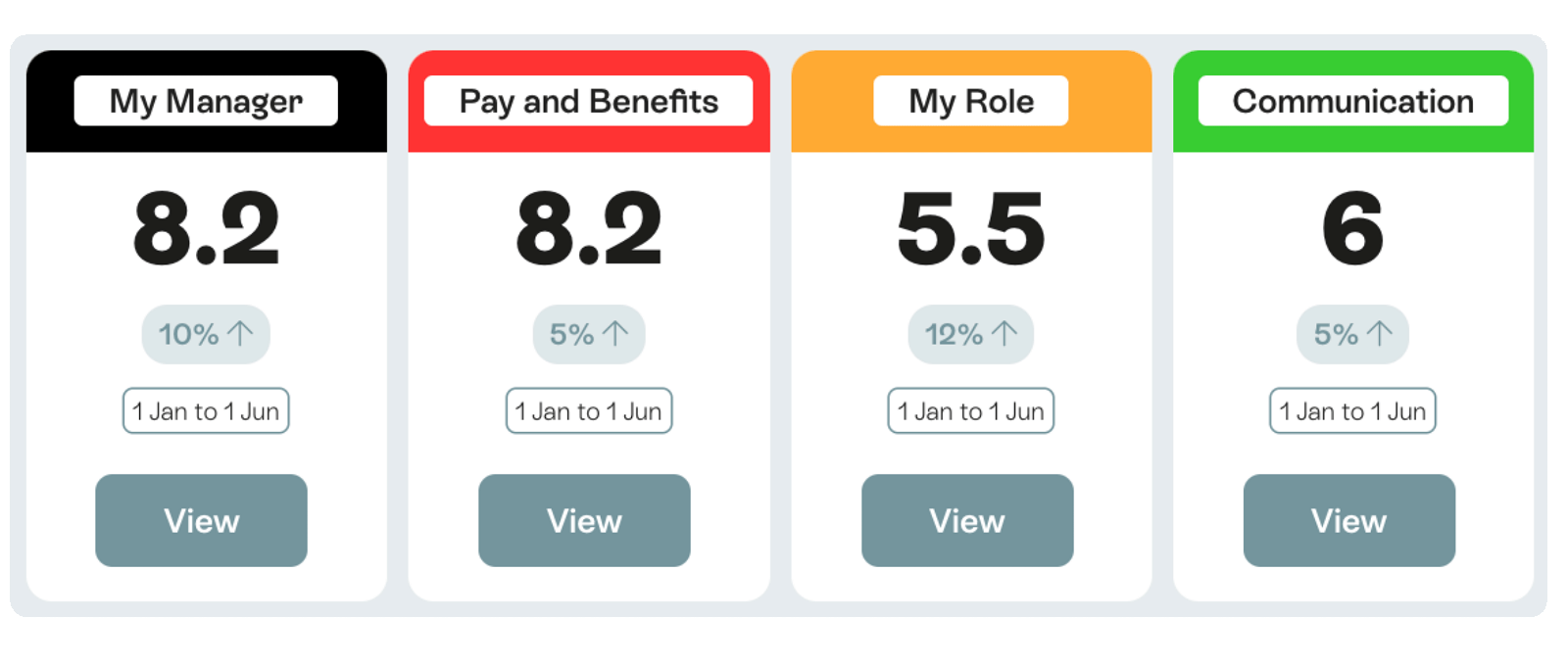How to make your 121 meetings more human
How to run a more meaningful 121 meeting. Free 121 template for download, and expert advice from Lucy Harvey, COO of Stribe.
Read MoreManagers are the type of employees most at risk of experiencing burnout at work.
This is typically because managers wear so many different hats in the workplace – and pressure comes from all angles.
Managers have extensive responsibilities, direct reports to support, are held responsible for achieving KPIs, all while having limited authority – because leadership and senior executives have the final say.
It can be overwhelming to say the least, and when managers aren’t supported by their organisations it often leads to burnout.
Stribe has several features that help organisations spot issues like employee burnout early, and implement changes before things can escalate.
Includes:
1 x Burnout risk self check-in
1 x Guide: How to spot manager burnout
1 x Manager feedback survey questions
1 x Mental health at work questionnaire
Burnout can feel like you’re running on empty, no matter how much you rest you try to get.
It’s that sense of constant exhaustion, where even the simplest tasks feel overwhelming, and you’re just not able to muster the energy or focus you used to have to get tasks done.
Mental Health UK defines burnout as “…a state of physical, mental and emotional exhaustion. It can occur when you experience long-term stress and feel under constant pressure.”

These findings show the pressing need for businesses to address burnout, particularly for their people in management roles.

When you discover your employees are experiencing burnout it can be very alarming, and you’ll immediately want to take action to help and support them, but you may not know the best approach.
These steps will guide you through best practice to help your managers who are overwhelmed and needing your support.
Don’t guess what your managers need – hear it directly from them.
Surveys are a brilliant way to tap into the minds of your managers and get an honest snapshot of how they’re feeling.
Ask them about their toughest challenges, workload, team dynamics and where they need support most.
When you simply ask managers for their feedback, it shows them you care and gives them a chance to share what’s really affecting them.
Plus, with anonymous surveys, managers are more likely to be open and honest, giving you clearer insights to act on.
Alongside surveys, have an anonymous communication channel that managers can access.
Managers often have to juggle many roles — from leading teams to handling difficult situations — and that can sometimes put them in tricky spots where they might not feel comfortable speaking up.
This is where having an anonymous communication channel makes all the difference.
It gives managers a safe space to express concerns, frustrations, or ask for help without fear of judgment or repercussions.
When managers can communicate freely and anonymously, they can get the support they need quickly, even on sensitive matters, which ultimately helps them feel more supported and reduces the stress they’re carrying.
Tracking and scoring manager wellbeing over time is key to keeping their performance and happiness in check.
With Stribe Values, you can monitor how managers are feeling about important areas like workload, support, and personal development.
By grouping and tagging survey questions, you can track trends and see the bigger picture over time. This approach helps you stay on top of manager wellbeing, ensuring that any red flags are addressed early.

Once you’ve gathered feedback through surveys, anonymous communication, and tracked wellbeing with tools like Stribe Values, the next (and arguably most important the most important) step is to take action.
Use the insights you’ve gained to make meaningful changes that address the real challenges managers face.
Whether it’s adjusting workloads, offering more support, or simplifying processes, the key is to show that your managers that feedback leads to action.
Keep the conversation going too, so managers feel comfortable speaking up moving forward. A culture of open dialogue ensures long-term wellbeing and prevents issues from building up.
See how Stribe has helped thousands of employees across the UK feel happier and healthier at work.
About the author

Starting out her early career as a journalist, Jade Madeley is an accomplished content writer with 8+ years’ experience across business, personal finance, SaaS, human resources and employee engagement. Working with Stribe, she crafts insightful content that brings complex HR topics to life and drives meaningful action.
How to run a more meaningful 121 meeting. Free 121 template for download, and expert advice from Lucy Harvey, COO of Stribe.
Read MoreThe STAR Framework. Many managers struggle with difficult conversations because they don’t know how to structure them.
Read MoreHow to present a strong business case that speaks your leaders’ language to get buy-in for HR software for employee engagement surveys.
Read More